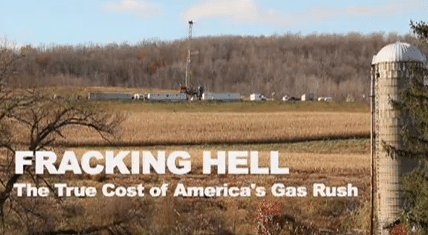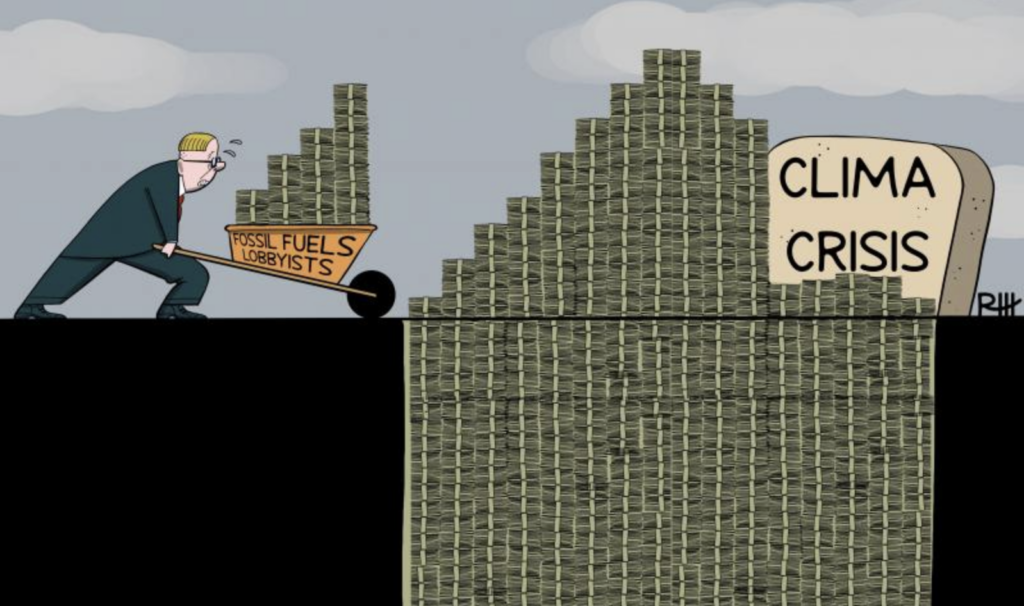I recently re-watched this 18-minute video produced by Britain’s Ecologist Film Unit profiling the threats posed by hydraulic fracturing for gas in the Marcellus Shale in the eastern U.S. It’s an excellent primer for anyone who wants to get up to speed on this issue. And, as this piece makes clear, the fracking threat and shale gas boom are not confined to the eastern U.S. by a long shot.
In addition to the huge gas rush in the U.S. West, as well as in B.C. and elsewhere in Canada, there is a growing industry effort to bring all the pollution and contamination risks of fracking to Europe too – just beginning in the UK, Poland, France and Germany.
The piece outlines the major threats – many recently profiled by the New York Times in its Drilling Down series – from radioactive wastewater, fracking chemicals and other risks to drinking water and public health posed by shale gas development. It explains the devestating toll that gas drilling has had on families and communities across the eastern U.S. region where the shale gas boom is underway, and the consequences of letting this practice gain acceptance throughout the world.
As the LinkTV narrator asks in her preface to their re-run of the video, “The gas business may be booming, but at what price for people?”
Watch the piece to find out some of the costs the gas industry is imposing on local residents affected by the drilling – as well as the enormous risk that shale gas drilling and development poses to the global climate. Around minute 13, Cornell University expert Anthony Ingraffea briefly explains the findings of his team’s research, noting that a full lifecycle analysis of shale gas reveals that it is “at least as dirty as coal.” Yeah, so much for that “gas can be a bridge to a renewable future” argument.
Also, don’t miss the former Mobil (as in, ExxonMobil) Senior Vice President Lou Allstadt talking about the “insane” proposed rules in New York that would allow gas fracking to occur within 150 feet of a river or lake that supplies drinking water to downstream communities. Yes, “that’s just insane” – straight from the former oil & gas VP’s mouth.
Will the U.S. recognize the dangers and quickly pass the FRAC Act – a preliminary but necessary bill to rein in this industry’s reckless drilling practices? Will the rest of the world recognize the threats posed by fracking in time to avert the damage being done across the U.S.? The stakes could not be higher, both for the climate and for drinking water supplies.
As one resident impacted by fracking operatins says in the video, “My life is over without my water.”
Subscribe to our newsletter
Stay up to date with DeSmog news and alerts







